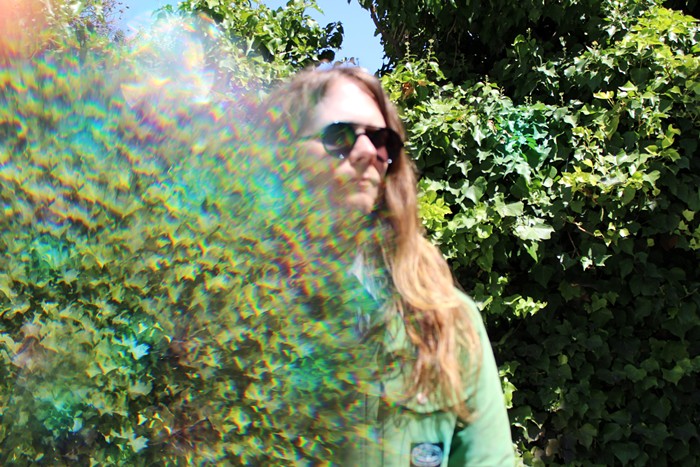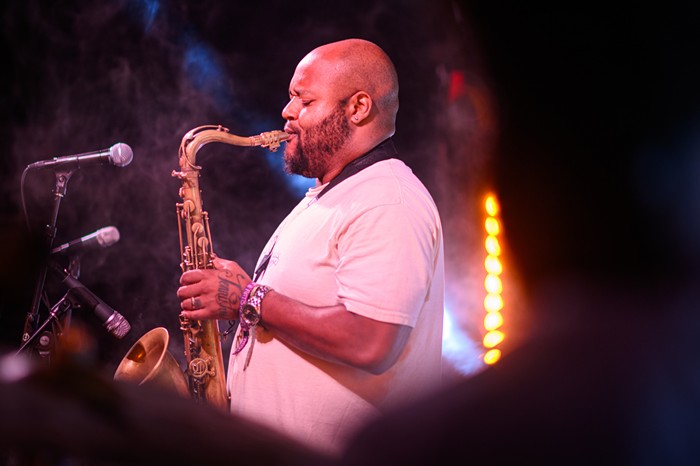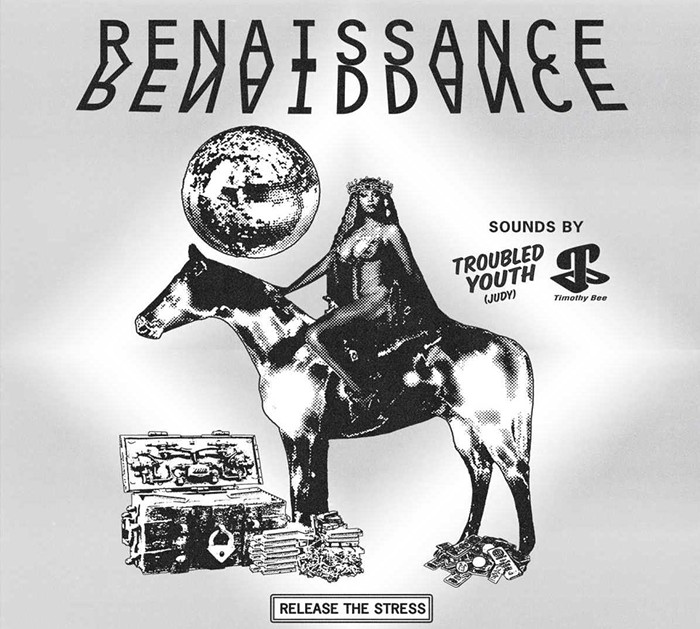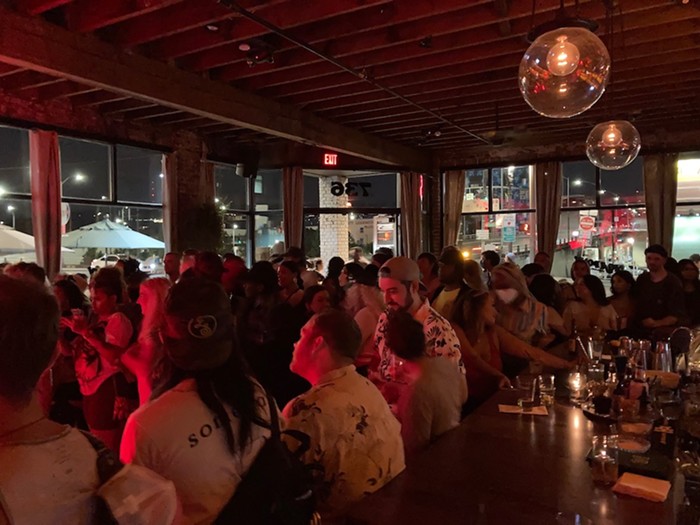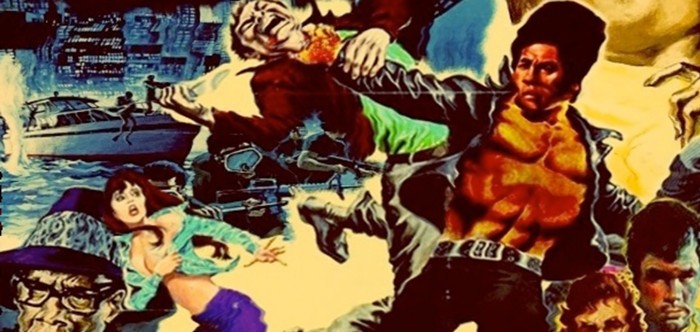WHEN NEW-WAVE connoisseurs the Epoxies entered the flat-lined terminal state known as "indefinite hiatus" last year, more than a few people felt cheated. Long after the last ball of DayGlo tape had been collected, and the fog machine smoke dispersed, the Epoxies' legacy lingered as an unfinished work of respectful vintage pop-punk that channeled Siouxsie Sioux's appeal alongside the kiddie-friendly bright colors of Devo. They were an undeniable pop band that everyone could thoroughly enjoy—and I mean everyone; from new wave soldiers rolling deep in Gary Numan's ride, to punk purists, to the occasional music snob eager for the release afforded by band members dressed like Blade Runner pleasure models. But before you spill tears on your Wayfarers, take solace in knowing that the Epoxy name lives on.
"We had our difficulties, like any band," explains frontwoman Roxy Epoxy, discussing the band's demise while trying to take cover from the barrage of music at this year's SXSW music festival. "It's a family, you're together a ton of time and packed into a little box of van and hotels. We had different ideas about what we wanted the band to do, and I think it came down to needing to respect that and not forcing it."
Post-breakup—or, hiatus, to be exact—Epoxy was looking to rebound from the split, so naturally her first recording would feature a backing band with a telling name: Roxy Epoxy and the Rebound. And despite its stopgap title, Band-Aids on Bullet Holes is hardly a temporary solution to the neon void left by her former band. Their debut recording was penned by Epoxy, along with Drat—her guitarist and significant other, not necessarily in that order—and acts as a natural evolution from where her former project left off. Just don't call it a solo record.
"I definitely wanted to use the same stage name," Epoxy admits, before adding, "but didn't want it just under 'Roxy Epoxy,' because this is a band. It's not, 'Here's me and here's my backing band.' All six of us are a band and I'm really honored to be working with this group of people, everyone is just fantastic to be around and we're having a great time together."
But if her newfound appreciation of band life is upbeat, it acts as the polar opposite of the band's deliberately bleak sound. Band-Aids is uniformly dark (sample lyric: "I want to take my heart to bed and play dead"), a grim assembly of songs that seamlessly manages to be immersed in the past, present, and future all at the same time. The thick wall of '80s keyboards is still there, Epoxy's signature howl (see the aforementioned Siouxsie Sioux reference) is ever present, and the lyrics read like a dystopian checklist of all the things that can go wrong.
So now that the fluorescent dust has settled from her former band's eight-year run, Epoxy is taking this new project—with her old stage name—and expanding on the unfinished legacy of her previous endeavor. Even if the prospect of starting again is a bit frightening, as she explains: "This just started out as a challenge: This idea really scares the shit out of me. I'd like to do it."

